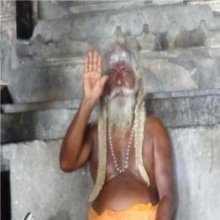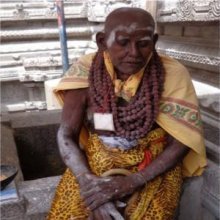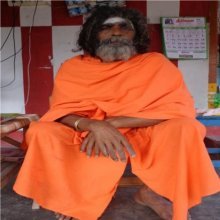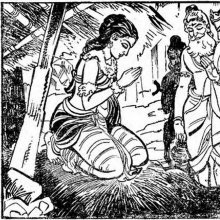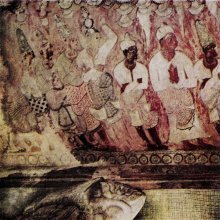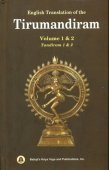Ase, Ashe: 3 definitions
Introduction:
Ase means something in Hinduism, Sanskrit, biology. If you want to know the exact meaning, history, etymology or English translation of this term then check out the descriptions on this page. Add your comment or reference to a book if you want to contribute to this summary article.
Images (photo gallery)
(+3 more images available)
In Hinduism
Vyakarana (Sanskrit grammar)
Source: Wikisource: A dictionary of Sanskrit grammarAse (असे).—Kṛt affix in the sense of the infinitive (तुमर्थे (tumarthe)) in Vedic Literature,e.g-जीवसे (jīvase); cf. तुमर्थे सेसेनसे (tumarthe sesenase)o P.III.4.9

Vyakarana (व्याकरण, vyākaraṇa) refers to Sanskrit grammar and represents one of the six additional sciences (vedanga) to be studied along with the Vedas. Vyakarana concerns itself with the rules of Sanskrit grammar and linguistic analysis in order to establish the correct context of words and sentences.
Biology (plants and animals)
Source: Google Books: CRC World Dictionary (Regional names)Ase in Yoruba is the name of a plant defined with Iodes africana in various botanical sources. This page contains potential references in Ayurveda, modern medicine, and other folk traditions or local practices.
Example references for further research on medicinal uses or toxicity (see latin names for full list):
· Flora of Tropical Africa (1868)
If you are looking for specific details regarding Ase, for example pregnancy safety, diet and recipes, health benefits, chemical composition, extract dosage, side effects, have a look at these references.

This sections includes definitions from the five kingdoms of living things: Animals, Plants, Fungi, Protists and Monera. It will include both the official binomial nomenclature (scientific names usually in Latin) as well as regional spellings and variants.
Languages of India and abroad
Kannada-English dictionary
Source: Alar: Kannada-English corpusAse (ಅಸೆ):—[noun] a flat stone on which spices are ground.
--- OR ---
Ase (ಅಸೆ):—[noun] the plant Argemone mexicana, of Papaveraceae family, Mexican poppy; yellow thistle.
--- OR ---
Ase (ಅಸೆ):—[noun] the front of the head from the top of the forehead to the bottom of the chin, and from ear to ear; the face.
--- OR ---
Āśe (ಆಶೆ):—
1) [noun] a strong desire; yearning; longing.
2) [noun] an expectation for a favourable thing to happen; a hope.
3) [noun] a feeling that what is wanted will happen.
4) [noun] any quarter of the compass; direction.
5) [noun] ಆಶೆಗೆ ಅಂತ್ಯವಿಲ್ಲ, ಪಾಶಕ್ಕೆ ಕಡೆಯಿಲ್ಲ [ashege amtyavilla, pashakke kadeyilla] āśege antyavilla, pāśakke kaḍeyilla avarice is never satisfied; ಆಶೆ ಅತಿ, ಆಯುಷ್ಯ ಮಿತಿ [ashe ati, ayushya miti] āśe ati, āyuṣya miti he hath limitless desires, but the capacity to achieve them is limited; ಅತಿ ಆಶೆ ಗತಿಗೇಡು [ati ashe gatigedu] ati āśe gatigēḍu too much of greediness, is too bad.
--- OR ---
Āśe (ಆಶೆ):—[noun] the seat of a horse driver; a saddle.
--- OR ---
Āse (ಆಸೆ):—
1) [noun] a strong wish or craving; a desire.
2) [noun] an expectation for favourable happening; a feeling that what is wanted will happen.
3) [noun] any of the four major divisions of a compass; a quarter.
4) [noun] a place or a person giving help, protection to another.
5) [noun] a seat for a rider on a horse, bicycle, etc., usu.padded and of leather, and generally saddled in riding; a saddle.
6) [noun] ಆಸೆ ತೋರಿಸು [ase torisu] āse tōrisu to tempt or encourage someone to do something by promising a reward; to hold out a carrot; ಆಸೆಮಾಡು [asemadu] āsemāḍu to wish or long for; to crave; to desire.
Kannada is a Dravidian language (as opposed to the Indo-European language family) mainly spoken in the southwestern region of India.
See also (Relevant definitions)
Starts with (+135): A-ciranacuram, Acesham, Acetam, Acetanam, Acetukai, Acevakavatam, Acir, Aciranam, Aciriyam, Acirtti, Acirvacanam, Acitalam, Acivam, Ase orisa, Aseanaya, Asebadaka, Asebadakatana, Asebadika, Asebadiki, Asebaka.
Ends with (+410): Aane hunase, Abanase-abanase, Abhilashe, Abhyashe, Abilase, Accarase, Adadase, Adase, Adhibhashe, Adhikritabhashe, Adubhashe, Afalafase, Agamabhashe, Agase, Akashe, Akkase, Akumase, Alarvase, Aliyase, Alubhashe.
Full-text (+1151): Bhasma, Bhasmasat, Bhasmabhuta, Vibhuti, Kshara, Citabhasma, Bhasmikarana, Bhasita, Bhasmavashesha, Hastimalla, Rakha, Tripundra, Bhuti, Homabhasman, Castanea pumila, Robinia hispida, Fire-berry hawthorn, Bhasmana, Mushkaka, Crataegus chrysocarpa.
Relevant text
Search found 252 books and stories containing Ase, Ashe, Āśe, Āse, Aase; (plurals include: Ases, Ashes, Āśes, Āses, Aases). You can also click to the full overview containing English textual excerpts. Below are direct links for the most relevant articles:
Sahitya-kaumudi by Baladeva Vidyabhushana (by Gaurapada Dāsa)
Text 10.15 < [Chapter 10 - Ornaments of Meaning]
Text 10.119 < [Chapter 10 - Ornaments of Meaning]
Text 7.32 < [Chapter 7 - Literary Faults]
Chaitanya Bhagavata (by Bhumipati Dāsa)
Verse 2.19.185 < [Chapter 19 - The Lord’s Pastimes in Advaita’s House]
Verse 1.4.14 < [Chapter 4 - Name-giving Ceremony, Childhood Pastimes, and Thieves Kidnap the Lord]
Verse 2.13.28 < [Chapter 13 - The Deliverance of Jagāi and Mādhāi]
Rig Veda (translation and commentary) (by H. H. Wilson)
Bhajana-Rahasya (by Srila Bhaktivinoda Thakura Mahasaya)
Text 3 < [Chapter 5 - Pañcama-yāma-sādhana (Aparāhna-kālīya-bhajana–kṛṣṇa-āsakti)]
Text 5 < [Chapter 2 - Dvitīya-yāma-sādhana (Prātaḥ-kālīya-bhajana)]
Text 13 < [Chapter 2 - Dvitīya-yāma-sādhana (Prātaḥ-kālīya-bhajana)]
Satirical works of Kshemendra (study) (by Arpana Devi)
9.7. Summary of the Rahgharā (1916) < [Chapter 1 - Introduction]
The Agaria < [March 1943]
Expectation < [October – December, 1982]
Jawaharlal Nehru - A Profile < [October – December, 1997]
Related products
